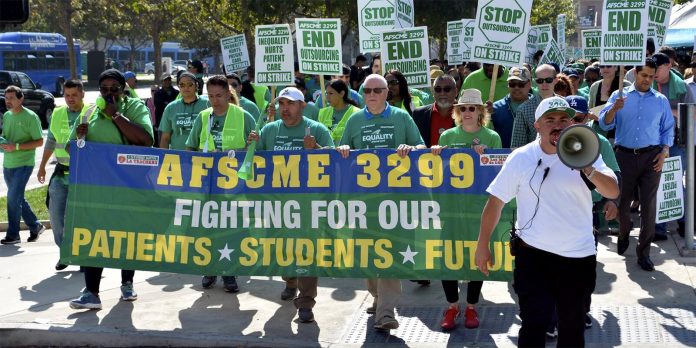Troy Aidan Sambajon
National Beat Reporter
Last week, student delegations from each University of California (UC) college attended the ninth annual Student Labor Organizing Conference. The four-day Zoom conference was held by AFSCME 3299, the UC’s largest employee union, to share knowledge about student organizing for labor and housing issues, as well as the lessons they learned from organizing across the UC campuses.
The conference featured community panels composed of student organizers from across the UC system, such as Anakbayan Santa Cruz, UC Davis United Students Against Sweatshops, the Student Labor Advocacy Project of UC Los Angeles, University Council – American Federation of Teachers, and Food Not Bombs Isla Vista. Through guided conversations and Q&A sessions, community organizers shared their latest insights about organizing during the pandemic and plans for the future.
In the keynote presentation, the housing shortage at UC Santa Barbara (UCSB) and other UC campuses was presented as the next cause to champion and an opportunity for students to organize.
“It’s difficult to focus on your educational studies when you don’t have safe and secure housing. What can we do legislatively to add additional housing and create enough space? What can we do to make sure our future generations and leaders are able to get a quality education and have secured housing?” said Oakland City Councilmember Carroll Fife.
“It’s difficult to focus on your educational studies when you don’t have safe and secure housing. What can we do legislatively to add additional housing and create enough space?” – Carroll Fife, Oakland City Councilmember
After the conference ended, The Bottom Line spoke with Joanne Hernandez and Jarod Ramirez, UCSB’s student delegation and stewards of the United Students Labor Action Committee (USLAC), about union organizing efforts at UCSB and next steps to engage in student labor movements as a UC student.
“You don’t really see it but almost everyone on campus is in a union. If your dorms are being cleaned, that’s AFSCME 3299. If your food gets cooked in the dining commons, that’s AFSCME 3299,” said Ramirez.
To Ramirez and Hernandez, the essence of a union is a community that helps fight for your own rights. A stronger labor movement means better rights and pay for everyone. For example, they pointed out that the UC’s more progressive and inclusive hiring practices were only made through the organized efforts of campus workers to improve the hiring process.
“You get a voice in the workplace. Dining commons workers are treated like temporary disposable workers. People working there need the money but if they’d like to earn the money they deserve, the only way they’re going to get that is through the union,” said Ramirez.
But organizing for the common good goes beyond our campus borders. USLAC is an on-campus group that focuses on labor organizing and working class issues. As stewards of USLAC, Joanne and Jarod hope to better our community for all unions and labor issues.
“But, organizing for the common good goes beyond our campus borders. United Students Labor Action Committee (USLAC) is an on-campus group that focuses on labor organizing and working class issues. As stewards of USLAC, Joanne and Jarod hope to better our community for all unions and labor issues.”
The busy schedule of a full-time student doesn’t always allow for students to organize themselves or dedicate themselves to the cause. Regardless, Hernandez and Ramirez still invite any and all students to come and support their cause.
“Even if they’re only able to come to the larger events, they still help push the movement and bring more visibility to the cause,” Hernandez adds.
If you’d like to learn more, follow @uslac_ucsb on Instagram or email uslac.ucsb@gmail.com to get connected with Hernandez and Ramirez learn more about organizing on campus.











